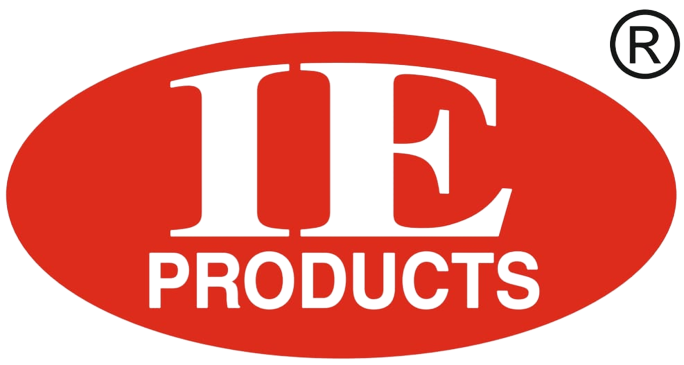Content
- Keeping accurate digital records
- E-Commerce Bookkeeping: Key Points to Consider in a Bookkeeping Solution
- Gives you better tracking of your inventory
- Tax management
- Set up a separate bank account for your online sales
- Do You Know Characteristics of a Scalable Business?
- Sales Tax for Ecommerce
- e-Commerce accounting helps you understand your business’s financial performance.

An accountant takes the data that a bookkeeper collects and organizes and discerns what this data means for your business at large. An accountant can perform the tasks of a bookkeeper (and many times they do), but a bookkeeper cannot perform all the tasks of an accountant (unless they become certified). Keeping proper track of your books and using professional accounting services will keep your business healthy and ready to grow. If you were to hire a full time bookkeeper you could pay $75,000 per annum or more.
We’ll set your eCommerce books up so that they are powered by proven processes and can easily be built upon. As you’ll find in your initial research, most virtual bookkeeping sites will offer ballpark pricing, but you’ll need to reach out to them in order to get a more customized quote. This will help in your conversations with the bookkeeping companies. Our recommendation (as you’ll see below) is to speak with a number of different options so you can see how they handle their onboarding process and you can get custom pricing quotes from each. From there, you can compare and contrast until you find one that you’re satisfied with.
Keeping accurate digital records
Accrual accounting is more suitable for businesses dealing with inventory. This method requires you to record revenue from sales when they occur, not when the cash is received. Accrual accounting helps you understand the long-term https://www.bookstime.com/ impact of inventory purchases and sales on your financial performance. A bookkeeping method refers to the practices and procedures used to record financial transactions, maintain records, and generate financial statements.
What is the basic accounting for ecommerce?
Ecommerce accounting sits under the umbrella of business accounting, where a bookkeeper or accountant records, enters, and organizes an online store's financial data, so there is a clear and accurate record of the flow of money into and out of the business.
Read on to learn more and find links to dig deeper and master your company’s finances. The reality is that ecommerce accounting is tricky, with many added complexities compared with accounting for a brick-and-mortar retail business. So, even if you’re a capable bookkeeper, there’s plenty more to learn in order to have clean, precise books for an online store. If you don’t have a firm grasp of your cash flow, it could be disastrous for your business. Cash flow statements help you understand whether or not your ecommerce sales are generating enough money to cover debts and operating expenses.
E-Commerce Bookkeeping: Key Points to Consider in a Bookkeeping Solution
You’ll likely be obligated to collect sales tax or pay income tax on your profits depending on your area and the things you sell. Speak with a tax expert to ascertain your tax requirements and save money accordingly. At Financial Solutions we make use of clearing accounts to manage the timing difference ecommerce bookkeeping between sales, deposits, fees and account usage across multiple payment processors. At Thomas & Co Accounting, we are experts in tax planning and preparation. The consequences of incorrectly interpreting and filing tax returns can be severe and we take pride in reassuring our ecommerce clients.
- Magento – Integrate with Magento to automatically synchronize sales data, inventory, and customer information, and manage orders and invoices.
- Here’s a simplified plan to help get you started with bookkeeping for your online store.
- Pro Compression ultimately synced QuickBooks Online with their sales records.
- We are experts in both accrual and cash basis accounting methods and we are happy to follow whichever method you prefer.
- However, the rules and rates vary by state, and businesses must stay up-to-date with the latest changes and requirements.
- Now, states can create their own sales tax nexus laws to include e-commerce sales even if the seller doesn’t have a physical presence in the state.
- Use our list of the best ecommerce platforms for additional guidance.
Some recommended courses include QuickBooks online tutorials, Udemy’s Small Business Accounting & Bookkeeping course, and Harvard Business School’s online accounting course. The cash flow statement shows a business’s cash inflows and outflows over a specific period, typically a quarter or year. It is used to measure a business’s ability to generate cash and to manage its cash flow effectively. BigCommerce – Connect your BigCommerce store with QuickBooks to streamline inventory management, order processing, and financial reporting. As an online business owner, you know that managing your business effectively requires attention to detail in many areas. From website development to digital marketing, there are many technical aspects to consider.
Gives you better tracking of your inventory
This is a necessary chore that helps small business owners follow and manage their money effectively – especially during the early stages. Besides keeping you aware of your business’ over a wide span of time performance, small business accounting additionally helps in generating invoices and completing finance. Your business life depends on e-commerce accounting and how you manage your cash flow. We are experts in both accrual and cash basis accounting methods and we are happy to follow whichever method you prefer. Given our expertise within eCommerce, we have seen that the majority of eCommerce companies use the accrual based bookkeeping method. Make your decision on which virtual bookkeeping service is the best for your business.
Thanks to modern technology and innovative software, e-commerce accounting has never been easier or more streamlined. If you use a payment processor (e.g., PayPal), customer returns and product exchanges can complicate your e-commerce bookkeeping. Customer want to return items for free—in fact, 67% of online customers expect it.
Tax management
It includes organizing, sorting, and recording the financial transactions of a business. The two accounting methods are cash accounting and accrual accounting. An ecommerce company always has a sales tax nexus in the state where the business is headquartered. Tax management can be complicated, and mistakes in filing or interpreting the tax code can have serious consequences for business owners. That’s why tax management (including both tax planning and preparation) is a core service of many accounting firms.

This allowed them to view all transactions and performance in real-time. Since the change, the company has been able to forecast sales and uncover new opportunities for growth. For example, if a customer orders $98, your e-commerce platform will collect $105.84 — $98 for the item(s) plus $7.84 in sales tax (8% of the purchase). Alternatively, you can set up two accounts, a Shipping Income account, and a COGS Shipping Expense account.
Set up a separate bank account for your online sales
Consider automating processes such as invoicing, recurring billing, and expense tracking to save time and reduce errors. You will also need to configure your payment gateway to ensure that payments are recorded accurately in your accounting system. Knowing your sales can help you understand your inventory better and plan for future offers. If you sell the same products across multiple sales channels, standardize product names, barcodes, SKUs, and other relevant information. Standardizing the information surrounding your products can help track them across sales channels. One of the great opportunities with an e-commerce business is expanding your customer base to different states.
If you host your online store on an e-commerce platform like Shopify or BigCommerce, merchant fees come with the territory. Building your store on top of those platforms offers many benefits, from quicker startup to easy search optimization. But to provide those perks, e-commerce platforms and payment processors must take a small cut out of every sale you make online.
Do You Know Characteristics of a Scalable Business?
Online Bookkeeping Service for eCommerce is similar to retail bookkeeping. The difference is it accommodates the requirements of a business operating online. Tax management, bookkeeping, and growth planning are often three major areas of emphasis. The software automatically sorts each expense into the appropriate category, so you never miss an opportunity for tax deductions. You can snap pictures of receipts using the QuickBooks mobile app or simply upload your receipts and invoices through the software. QuickBooks will automatically sync those receipts with the transactions.
- Last but not least, we regularly see business owners in all industries ignoring the upkeep of their books until it’s too late.
- It allows businesses to import, delete and export transactions like bank statements and credit card transactions, categorize them, and reconcile them with ease.
- Start by organizing financial documents and maintaining neat accounting records throughout the year.
- We combine ecommerce-specialized accountants and bookkeepers with processes and technology to provide a solution that matures and advances your business.
- Bank reconciliation could take just a few minutes if you’re using one of our accounting integrations.
- This in-depth guide covers everything you need to know about ecommerce accounting, including its importance, benefits, quick tips, and long-term best practices for success.
You may end up with hundreds of shipments simultaneously and tracking and recording each movement of inventory into the business’ accounts can become nigh impossible for one person to handle. E-commerce is an inventory-based industry, which means robust inventory management is required for the business to function. Inventory management is already very difficult in a traditional retail store, but in the E-commerce industry, it gets much more difficult to manage. It is not always sunshine and rainbows when streamlining e-commerce accounting with automation. This move reflects the company’s growing commitment to online sales, as e-commerce continues to grow rapidly and become a key driver of revenue for many businesses.
To run a successful e-commerce business, make sure you comply with state sales tax laws. Before 2018, businesses had to collect sales taxes in states where the company had sales tax nexus. A company’s tax nexus depended on its physical presence in a state. If your company had a warehouse, headquarters, or retail stores in a state, you had tax nexus in the state.
- And the first step of understanding those nuances is knowing the difference between bookkeepers and ecommerce accountants.
- What makes e-commerce accounting unique and in some ways more challenging than other industries.
- Bookkeeping involves recording and organizing financial transactions, such as sales, purchases, and expenses, into a systematic and comprehensive manner.
- E-commerce hit $1.09 trillion in the U.S. in 2022, with the last quarter accounting for $332.2 billion, the analytics and measurement company said in an exclusive to Forbes.
- Bookkeeping helps business owners understand the financial situation of the company.
- Once your ecommerce accounting solutions and policies are in place, you can spend less time on bookkeeping and more time growing other parts of your business.



